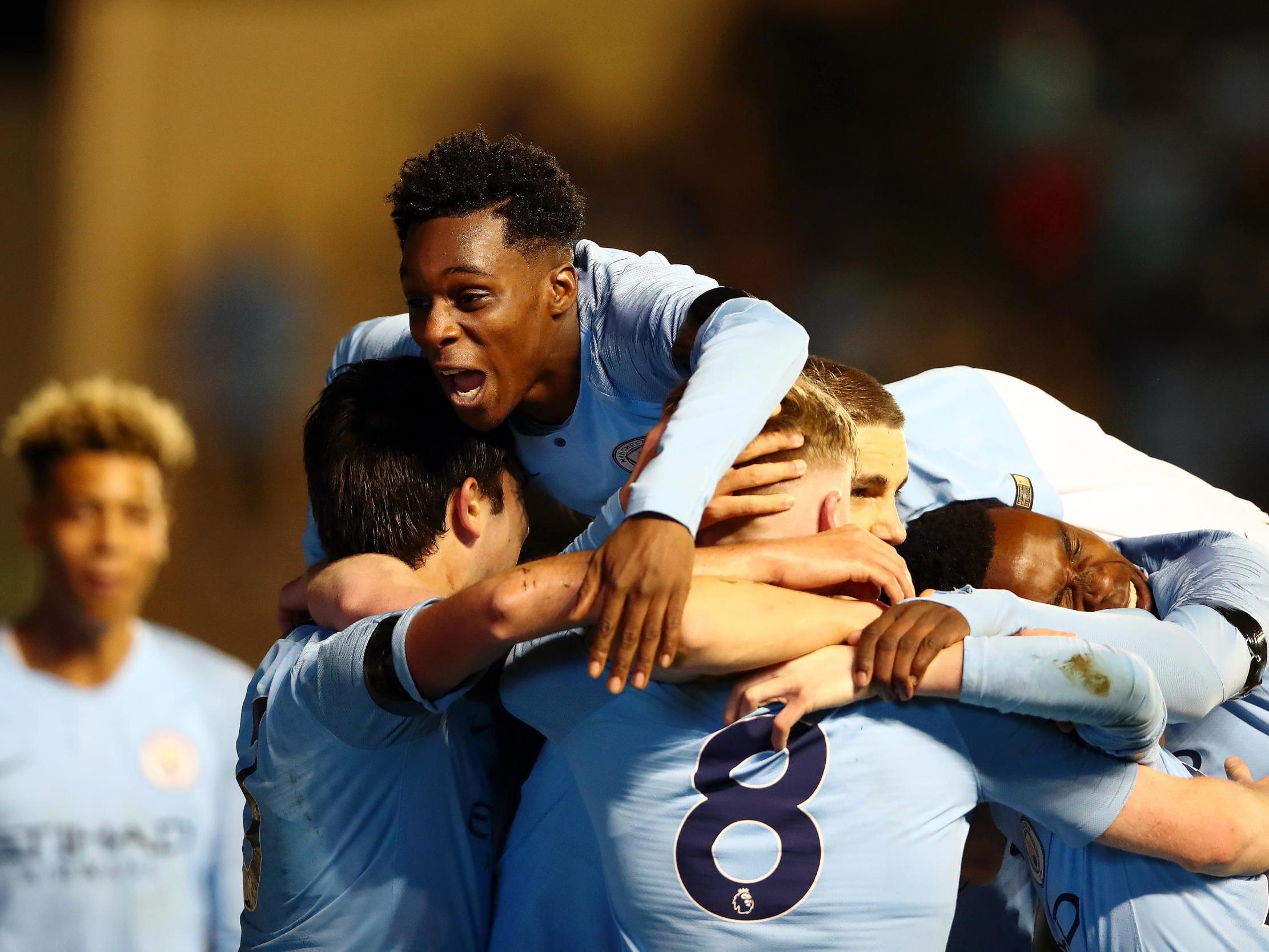Man City vs Liverpool: City's youth development is reaping much richer rewards than silverware
City's academy is placing far more emphasis on pushing and developing their players, as opposed to chasing trophies at the youth level
Manchester City play Liverpool in the final of the FA Youth Cup tonight, but do not think of it as any sort of undercard or warm-up for the final weeks of the season. Because compared to the clubs’ approach to the Premier League title race, their attitude to the Youth Cup, especially at City, is very different. There are more important things than winning.
This is the tension at the heart of youth development. Should clubs focus on trying to win the competitions? Or on trying to develop and push their players all the time? This has been the first full season of Jason Wilcox as City’s academy manager, and he has gone decisively for the latter approach: winning should be a by-product of development, but never the target. Because that will benefit City far more in the long-run, through the development of more Phil Fodens and Jadon Sanchos, who are worth more than any under-age trophy.
The rise of Wilcox has been one of the most significant behind-the-scenes stories at City in the last few years. The former Blackburn Rovers player, who trained with City as a boy, was initially under-13 manager, promoted to under-18 manager in 2013 and then under-21 manager after that. The key to his rise has been how much he has impressed the Catalan technical staff, especially Txiki Begiristain and Rodolfo Borrell, who joined as global technical director in 2014. They see him as an English coach especially keen to learn and read and develop himself. And they recognise a shared footballing philosophy, dominating the ball, playing it out from the back, moving quickly upfield.
City’s former academy manager was Mark Allen, a man who spent 12 years as an executive for MTV before joining City at the start of the Abu Dhabi era. When he ran the City academy he wanted to win things and put together strong teams for that purpose. But at the start of last season he left City to be director of football at Rangers. And Wilcox was chosen to replace him.
If last season was a transitional year from Allen to Wilcox, this year has been when Wilcox has put his stamp on the academy. And the most important new policy has been pushing players up above their age group teams. This means filling age-group teams with players who are younger than the cut-off. They will often be out-muscled by older teams, and they will win fewer games and trophies as a result. But they will learn more too. This has been a policy at Chelsea for some time, where the Under-23s is increasingly for teenagers rather than players in their 20s. And City now lead the way.
This means that the City team on this Youth Cup run are all being pushed up to play for City’s Under-23s team this season, rather than the Under-18s team that they are still eligible for. Eric Garcia and Felix Nmecha are both second-year scholars and are still 18 years old, local boys Tommy Doyle and Taylor Harwood-Bellis are first-year scholars and are still 17. Jeremie Frimpong and Nabil Touaizi are 18, Nathanael Ogbeta and Barcelona signing Adrian Bernabe are 17. But these teenagers are being tested in the Under-23s league, sometimes getting out-muscled, but always learning fast.
The richest academies have struggled with their young players thinking that they have already made it, but City’s policy is geared towards keeping the players grounded. It is a much more player-centred approach and even one head of a rival academy has said that he is impressed that City are not just about winning any more.
The development of players is also aided by the coaching team Wilcox has around him, especially Simon Davies, the academy’s head of coaching. Davies was a member of Manchester United’s ‘Class of 92’ as a teenager but then moved into coaching. He was Patrick Vieira’s assistant for City’s Under-23s and has since had a major role in the development of youngsters such as Foden and Brahim Diaz. Stewart Thompson has also done important work as an academy scout, bringing in talent and helping to develop and mentor players when thy arrive.

The success of those players is the real mark of the City academy. They made healthy profits on Brahim, Sancho and Rabbi Matondo, but the story of Foden, who scored the winner against Spurs on Saturday, is even more important. He was pushed as a youngster and now, at the age of 18, he is ready to compete at the highest level. Which is a bigger trophy than the Youth Cup will ever be.
Join our commenting forum
Join thought-provoking conversations, follow other Independent readers and see their replies
Comments
Bookmark popover
Removed from bookmarks